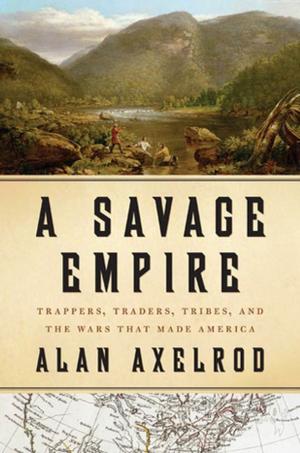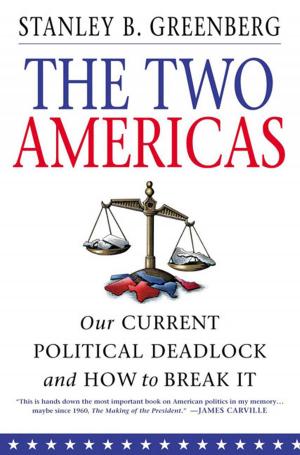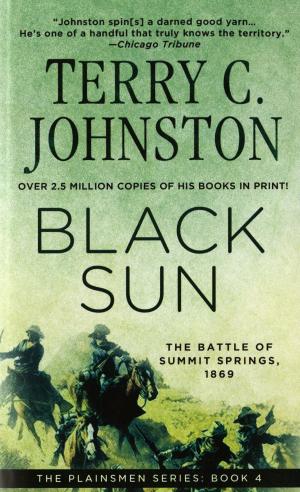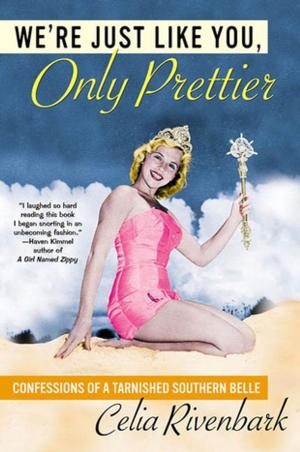The Great Boom 1950-2000
How a Generation of Americans Created the World's Most Prosperous Society
Business & Finance, Economics, Economic History, Nonfiction, History, Americas, United States, 20th Century, Social & Cultural Studies, Political Science| Author: | Robert Sobel | ISBN: | 9781250112910 |
| Publisher: | St. Martin's Press | Publication: | February 9, 2016 |
| Imprint: | St. Martin's Griffin | Language: | English |
| Author: | Robert Sobel |
| ISBN: | 9781250112910 |
| Publisher: | St. Martin's Press |
| Publication: | February 9, 2016 |
| Imprint: | St. Martin's Griffin |
| Language: | English |
In The Great Boom, historian Robert Sobel tells the fascinating story of the last 50 years when American entrepreneurs, visionaries, and ordinary citizens transformed our depression and war-exhausted society into today's economic powerhouse.
As America's G.I.s returned home from World War II, many of the nation's best minds predicted a new depression—yet exactly the opposite occurred. Jobs were plentiful in retooled factories swamped with orders from pent-up demand. Tens of thousands of families moved out of cities into affordable suburban homes built by William Levitt and his imitators. They bought cars, televisions, and air conditioners by the millions. And they took to the nation's roads and new interstate highways—the largest public works project in world history—where Kemmons Wilson of Holiday Inns, Ray Kroc of McDonalds, and other start-up entrepreneurs soon catered to a mobile populace with food and lodgings for leisure time vacationers.
Americans and their families began to channel savings into new opportunities. Credit cards democratized purchasing power, while early mutual funds found growing numbers of investors to fuel the first postwar bull market in the go-go '60s. At the same time the continuing boom enriched the fabric of social and cultural life. A college education became a must on the highway to upward mobility; high-tech industries arose with astonishing new ways of conducting business electronically; and an unprecedented 49 million families had become investors when the 1981-2000 stock market boom reached 10,000 on the Dow.
The Great Boom is the first major book to portray the great wave of homegrown entrepreneurs as post-war heroes in the complete remaking and revitalizing of America. All that, plus the creation of unprecedented wealth—or themselves, for the nation, for tens of millions of citizens—all in five short drama-filled decades.
In The Great Boom, historian Robert Sobel tells the fascinating story of the last 50 years when American entrepreneurs, visionaries, and ordinary citizens transformed our depression and war-exhausted society into today's economic powerhouse.
As America's G.I.s returned home from World War II, many of the nation's best minds predicted a new depression—yet exactly the opposite occurred. Jobs were plentiful in retooled factories swamped with orders from pent-up demand. Tens of thousands of families moved out of cities into affordable suburban homes built by William Levitt and his imitators. They bought cars, televisions, and air conditioners by the millions. And they took to the nation's roads and new interstate highways—the largest public works project in world history—where Kemmons Wilson of Holiday Inns, Ray Kroc of McDonalds, and other start-up entrepreneurs soon catered to a mobile populace with food and lodgings for leisure time vacationers.
Americans and their families began to channel savings into new opportunities. Credit cards democratized purchasing power, while early mutual funds found growing numbers of investors to fuel the first postwar bull market in the go-go '60s. At the same time the continuing boom enriched the fabric of social and cultural life. A college education became a must on the highway to upward mobility; high-tech industries arose with astonishing new ways of conducting business electronically; and an unprecedented 49 million families had become investors when the 1981-2000 stock market boom reached 10,000 on the Dow.
The Great Boom is the first major book to portray the great wave of homegrown entrepreneurs as post-war heroes in the complete remaking and revitalizing of America. All that, plus the creation of unprecedented wealth—or themselves, for the nation, for tens of millions of citizens—all in five short drama-filled decades.















